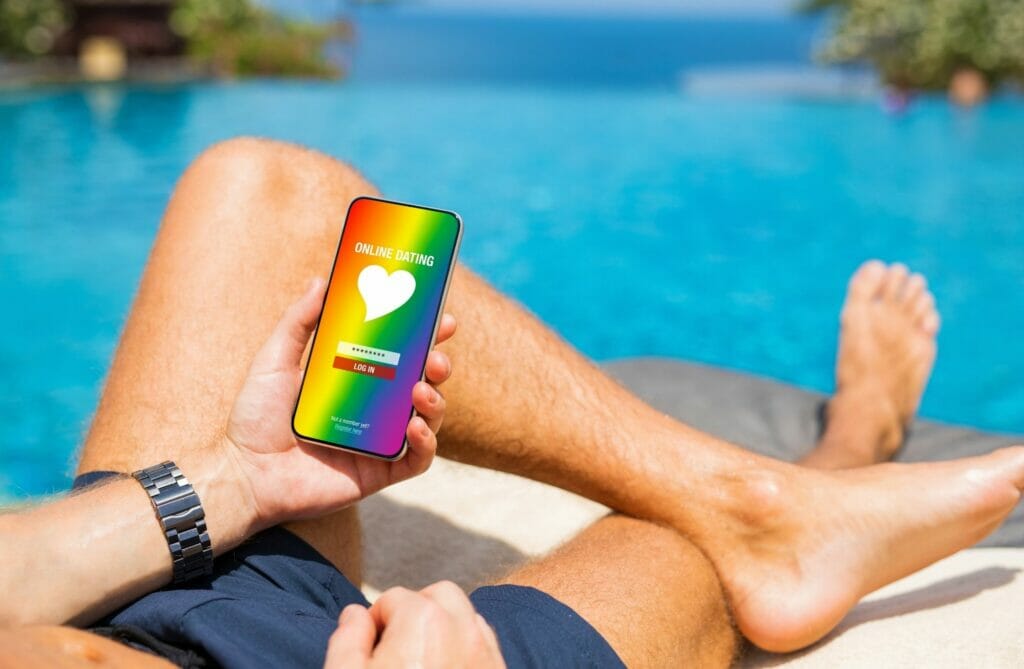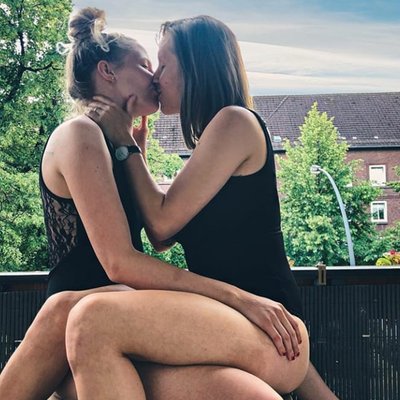Emily Otnes remembers your day she waited in maximum Perenchio’s business, The Nest. The walls happened to be covered with tarot card tapestries and around the space had been stacks of amps, nets of line, and miscellaneous mess.

“we had been performing a treatment because of this song,” Emily tells me from her residence in Champaign, “therefore we needed a label at the end of the chorus. We needed
that thing
.” She leans toward the sexcam and brushes a loose strand of brown locks behind the woman ear. She’s in a directorial mind-set today. She wishes all things in their best source for information. “the guy came back along with his arms spread available,” she states demonstrating, her palms into threshold, the lady chin lifting like she’s at church, “and belted on âWe’re located in the Afterlove.'”
Keeping her arms lifted, she says, “this is why he talks as he was actually excited.” Emily blends her tenses whenever she covers Max, the woman friend, music producer, and nearest collaborator, whom passed on from incidents suffered during an auto accident two days before we talked. She lives between instances, both past and existing at the same time.
“We held that due to the fact subject therefore the hook,” Emily informs me. “we had been trying to build this world, an elevated globe, sparkly, above routine life power. In my opinion you will find a location spiritually that people have to go whenever we shed somebody â physically or romantically â which much more real than an afterlife. I am able to visualize it more demonstrably. We’ve been through it one hundred instances.”
In the world of Emily Blue, Otnes’ musical persona, time is actually a thing that repeats, and “The Afterlove
,”
her newest record,
is starting to become a record album packed with lively odes to pop songs regarding the â80s. It imagines a “bisexual hookups utopia” that may have existed prior to now and may in the foreseeable future. This indicates to wonder: When we could go back in time â when we might be our parents, form our very own society, rebuild the field of now â would things be varied, or would they stay alike?
“i am moving by, attempting to finish these songs, as if I don’t do that, i shall invest days in my emotions,” she states. “This is an easy method personally feeling attached to him and inspired by him because he ⦠ha[d] such a very good notion in me personally.”
For the 11 years since Emily’s very first record, introduced together musical organization Tara Terra, Emily features played the roles of a lot females. She’s got stood in a black and white striped t-shirt and sung folksy tracks of girls gone astray and trains back again to the dead. In a buttermilk lace outfit and wide white sunhat, she once folded her hands on the railway of a sun-bleached fire escape and performed, “i’ll take the backdoor baby / because i will view you’re wanting to show me out. / i understand you’re good with some other person.” The majority of the woman existence, Emily features used the woman locks lengthy and blonde. Often she styles it a blunt bob or a plentiful mass of curls, which evokes the barroom indie-rock in our Midwest childhoods in addition to covers of CDs plucked from dash while operating down I-90. Some days, it’s very streamlined it looks such as the last’s vision of another saturated in femmebots and androids.
When the vision of her webcam opened on our very own talk, her locks had been brown and pulled behind her ears. Very much accustomed on blonde of her movies, I happened to be surprised. “It’s easy to describe females,” she tells me, “because Im one. ⦠and in addition, ladies artistic appearances in addition to their choice of dress and beauty products and expression is so huge. I am able to draw from plenty recollections.” Frequently, Emily’s songs can feel as you tend to be viewing the girl tweak a digital timeline where self is resequenced, reimagined, remixed, and always modifying. “It is some sort of digital costume outfit,” she says.
She sounds oftentimes like an alternate truth Taylor Swift. Some days, she swaggers like Melissa Etheridge or shreds like St. Vincent. Each image is actually unmistakably Emily, though. The woman present albums are finding the lady bending more into her sci-fi tendencies than ever. In advance of “The Afterlove” ended up being “*69,” an album of stirring and boisterous glitch-pop.
“i have been planning to do another record for a long period,” Emily claims. “we made â*69′ with Max â maximum Perenchio.” She articulates his full name slowly, thoroughly. “he or she is so special inside the method. He’s probably the most zany individuals i have ever before encountered.” You can notice that for the songs they made. Even if words are serious, the music tend to be bouncy and story falls under a science-fiction genre that pledges to be just a black mirror. In “Microscope” Emily sings, ”
But you know how it goes.
/
The light will get up
,
immediately after which quickly you are in microscope.
/
And everyone would like to see
â¦. /
It’s all an element of the trend of an afterthought
/
When a person dies they never ever let you grieve.”
We chatted shortly about Legacy Russell’s publication “Glitch Feminism: A Manifesto
.
” Russell offers that problem permits, allows, and embodies paradoxes, which is often revolutionary methods. It breaks how something runs and/or performance it operates at. It states no to scripted programs and activates other people. Emily is working a paradoxical system, as well. In one single dialogue â the tracking of which a glitch lowered to an hour or so of corrupted silence â Emily explained that “The Afterlove” and its own â80s odes came out of a desire for a “pre-social news.” “I would like to sell this album with a Zine about things related now â items that weren’t talked-about after that.” Emily wishes days gone by and also the gift, wishes playfulness and horror, wants men and women and everybody in between. She wishes the nuance and complexity.
“*69”
ended up being accurate documentation “about a striking sexuality,” Emily informs me. “The Afterlove”
means connections writ large, how they begin and just how they end. “The ending is what âThe Afterlove’ motif means. That is the component that sticks around,” she informs me. “you can find tunes concerning newness and enjoyment at the start, ⦠but it’s a cycle,” Emily says. “I am undertaking a moon cycle of men and women. I have expanded alot with this particular record, and I’m nonetheless rendering it nowadays, although we’re incubating.”

It hits myself that “incubating” may be the correct word for a record album where Emily is actually flipping more and more to the fleshy, animalistic moments of songs. It is the correct word for an artist whose greatest device is actually her human anatomy. On “*69,” she permit animal noises of gasps and gags create the soundscape of a hyper-excited body, like from the track “Falling In Love,” in which she hyperventilates in to the line “Bad women, you’re busting my center. Never might get over you.” The meter forces a sigh, and she contributes, “Sad boys, you rip me personally apart. Absolutely nothing hurts me as you would.”
As Emily Blue releases more music, discover a feeling if not of hatching, after that of becoming. She paces melodies relating to sharp breaths. These breaths underscore the desires of her figures, the needs they might be attempting to save yourself from busting from the body and/or men and women they might will invite in.
”
The Afterlove” takes this need further, locates it on a fresh world, comes after its trajectory across solar system. ”
Peace away. Why don’t we get this for the clouds,” she sings on “view you within my ambitions.” “expensive diamonds from inside the sky. / we are thus precious that I’m sobbing. / Every touch is a lot like a shooting star. / Every hug is radiant in the dark. / we never ever need to awaken.”
Before their death, Max developed one four tunes on eight-song record. At the start of each “The Afterlove”
recording session, “i might arrive with an iced coffee, most likely two, because the guy likes Dunkin’ black coffee besides,” she states. “we might joke around, create an idea based on one tune.” Emily would bring her aesthetic and maximum would bring his own. “maximum’s textural globe is really huge, and then he really loves an effective psychedelic concept.” Each of them would “start placing things with each other, shouting at every different in a good way: âWhat if we did this!?'” Whenever Emily states this, she mimes excitement but are unable to rather seem to muster the power she clearly misses. The songs “slowly pieced itself with each other” whenever they taped. “He would control myself this horrible microphone, plug it into autotune, and then make it appear to be a ’90s or early 2000s vocoder audio. I might begin performing ideas, maybe not words fundamentally, mostly the beat,” she claims. “He would choose sounds that managed to make it sound more like tomorrow.”
“indeed, I’ve been viewing the
â
Back into the long term’ collection recently,” Emily confesses with a chuckle. “I just love just how time travel is symbolized! It really is very zany!” This is the way she expressed maximum, too, we note. “eventually travel you’ll be really imaginative,” she claims. “you can easily imagine such a thing.”
In “The Afterlove”‘s signature track, “7 Minutes,” Emily visualizes a celebration where her lover’s sex actually decided until the next verse, in which the “dresser is actually another aspect,” in which seven mins in Heaven is literal, she has angel wings and wears a white corset and lace sleeves that shimmer and swoop like bubbles in low the law of gravity. Anybody could join her there.
7 Minutes cover
Picture by thanks to Emily Blue
The songs movie for “7 Minutes” is actually filmed in form of a VHS tape: grainy, purple, and sepia. The woman golden-haired locks are straight back. The woman brown hair is, also, themed large and huge. The woman is both herself and somebody else. The future of those two figures is actually unwritten. In the cause of “The Afterlove
”
is a question: what exactly do you receive any time you incorporate “my vintage visual and the question,
âWhat could tomorrow possibly hold?'”
“in my own mind,” Emily responses, “a queer haven in which everybody is able to likely be operational and vulnerably themselves. ⦠My songs is generally that market.” It’s a new measurement in which we stay really and dance. It’s a queer, colourful globe; it’s just anyone brief.
“the whole process of focusing on something which maximum and that I developed has grown to be in preserving the integrity on the song,” she tells me. “I don’t would you like to imagine to-be maximum, and that I do not want another manufacturer to imagine getting maximum. Easily’m generating a track on my own i’ve a conversation with Max in my head â perhaps out loud â and that I’ll ask him âexactly what do you believe of the?’ i will nearly hear the answer. Somehow we finished up exactly where we had been looking to.”